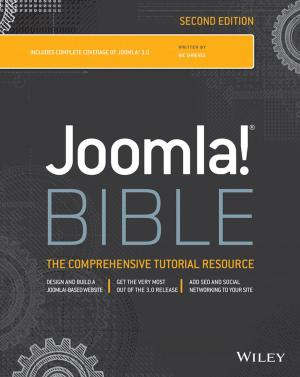The Wiley Handbook of Ethnography of Education
Nonfiction, Reference & Language, Education & Teaching| Author: | ISBN: | 9781118933725 | |
| Publisher: | Wiley | Publication: | March 2, 2018 |
| Imprint: | Wiley-Blackwell | Language: | English |
| Author: | |
| ISBN: | 9781118933725 |
| Publisher: | Wiley |
| Publication: | March 2, 2018 |
| Imprint: | Wiley-Blackwell |
| Language: | English |
A state-of-the-art reference on educational ethnography edited by leading journal editors
This book brings an international group of writers together to offer an authoritative state-of-the-art review of, and critical reflection on, educational ethnography as it is being theorized and practiced today—from rural and remote settings to virtual and visual posts. It provides a definitive reference point and academic resource for those wishing to learn more about ethnographic research in education and the ways in which it might inform their research as well as their practice.
Engaging in equal measure with the history of ethnography, its current state-of play as well as its prospects, The Wiley Handbook of Ethnography of Education covers a range of traditional and contemporary subjects—foundational aims and principles; what constitutes ‘good’ ethnographic practice; the role of theory; global and multi-sited ethnographic methods in education research; ethnography’s many forms (visual, virtual, auto-, and online); networked ethnography and internet resources; and virtual and place-based ethnographic fieldwork.
- Makes a return to fundamental principles of ethnographic inquiry, and describes and analyzes the many modalities of ethnography existing today
- Edited by highly-regarded authorities of the subject with contributions from well-known experts in ethnography
- Reviews both classic ideas in the ethnography of education, such as “grounded theory”, “triangulation”, and “thick description” along with new developments and challenges
- An ideal source for scholars in libraries as well as researchers out in the field
The Wiley Handbook of Ethnography of Education is a definitive reference that is indispensable for anyone involved in educational ethnography and questions of methodology.
A state-of-the-art reference on educational ethnography edited by leading journal editors
This book brings an international group of writers together to offer an authoritative state-of-the-art review of, and critical reflection on, educational ethnography as it is being theorized and practiced today—from rural and remote settings to virtual and visual posts. It provides a definitive reference point and academic resource for those wishing to learn more about ethnographic research in education and the ways in which it might inform their research as well as their practice.
Engaging in equal measure with the history of ethnography, its current state-of play as well as its prospects, The Wiley Handbook of Ethnography of Education covers a range of traditional and contemporary subjects—foundational aims and principles; what constitutes ‘good’ ethnographic practice; the role of theory; global and multi-sited ethnographic methods in education research; ethnography’s many forms (visual, virtual, auto-, and online); networked ethnography and internet resources; and virtual and place-based ethnographic fieldwork.
- Makes a return to fundamental principles of ethnographic inquiry, and describes and analyzes the many modalities of ethnography existing today
- Edited by highly-regarded authorities of the subject with contributions from well-known experts in ethnography
- Reviews both classic ideas in the ethnography of education, such as “grounded theory”, “triangulation”, and “thick description” along with new developments and challenges
- An ideal source for scholars in libraries as well as researchers out in the field
The Wiley Handbook of Ethnography of Education is a definitive reference that is indispensable for anyone involved in educational ethnography and questions of methodology.















